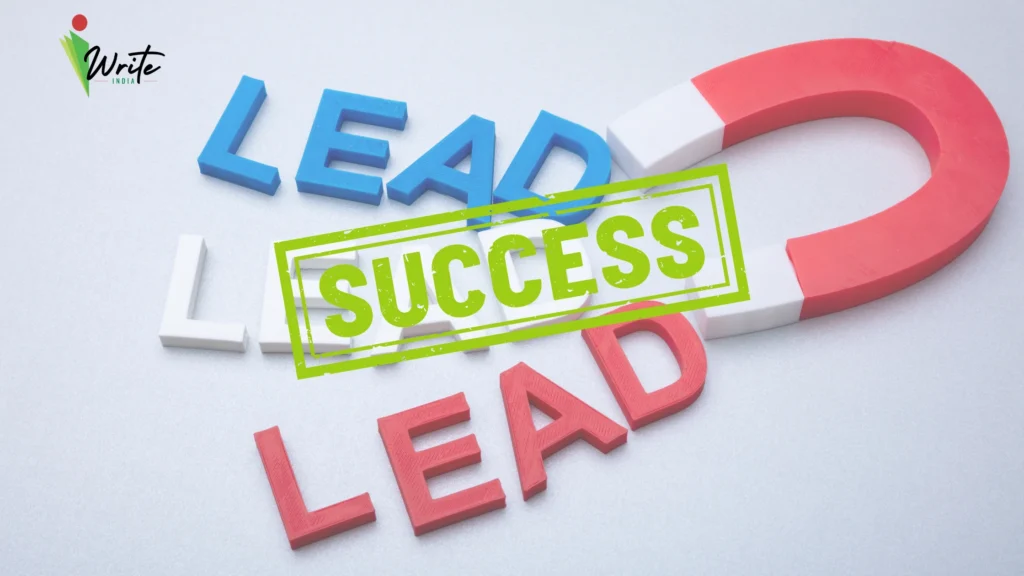If you’re investing time, money and resources into creating and sharing content for your business, it’s essential to ensure your efforts pay off. This means attracting the right audience, building credibility, and ultimately driving leads. The most effective way to achieve these goals is by implementing a well-structured content marketing strategy.
If you are new to content marketing or want to strengthen your existing strategy, this blog will help you understand the process of developing a result-driven content marketing strategy step by step. Whether you’re a seasoned marketer or just starting, this guide will equip you with actionable insights to drive measurable results.
What is a Content Marketing Strategy?
A content marketing strategy is a comprehensive plan that outlines how content will be created, distributed, and measured to achieve specific business goals.
For B2B businesses, this strategy goes beyond product promotion. It focuses on providing valuable, relevant content that educates and nurtures potential clients throughout their buying journey.
Why Your Business Needs a Content Marketing Strategy for Lead Generation?

A well-crafted content marketing strategy is essential for attracting, nurturing, and converting leads in today’s digital world. It helps build trust, improve search engine visibility, and deliver valuable content tailored to every stage of the customer journey. By consistently addressing your audience’s needs and leveraging SEO best practices, your business can generate high-quality leads cost-effectively while standing out in a crowded market.
Why Content Marketing Matters:
- Lead Generation: Content drives 3x more leads than traditional marketing.
- Trust Building: 95% of B2B buyers consider content as a trusted source of information.
- SEO Benefits: Companies that prioritize content see 7.8x higher traffic growth.
Key Steps to Build a B2B Content Marketing Strategy
Step 1: Define Your Goals and KPIs
Setting clear goals is the foundation of a successful content marketing strategy. Without defined objectives, your content efforts may lack focus and direction. Establishing measurable KPIs ensures you can track performance and adjust your approach as needed. The most common ones include:
- Increasing website traffic
- Generating quality leads
- Boosting brand authority
Start by setting up measurable KPIs like organic traffic growth, conversion rates, and engagement metrics.
Step 2: Understand Your Audience (Buyer Personas)
Knowing your audience is crucial for creating content that resonates and drives action. Buyer personas help you understand your ideal customers’ needs, challenges, and preferences, ensuring your content addresses their specific concerns effectively.
- Pain points and challenges
- Preferred content types
- Decision-making processes
Tools like Google Analytics and SEMrush can provide audience insights
Step 3: Conduct Competitor and Market Research
Understanding what your competitors are doing helps you identify gaps and opportunities in your content approach. By analysing their successes and failures, you can craft a strategy that differentiates your brand and delivers value to your audience.
- Analyse their top-performing content
- Identify content gaps
- Learn from their mistakes
Step 4: Choose the Right Content Formats
Different types of content serve different purposes in the buyer’s journey. Selecting the right content formats ensures that your message reaches your audience effectively at every stage, from awareness to conversion.
- Awareness Stage: Blogs, Infographics
- Consideration Stage: Whitepapers, Case Studies
- Decision Stage: Testimonials, Product Demos
Step 5: Create a Content Calendar
A content calendar helps you plan, organize, and maintain consistency in your publishing schedule. It ensures that your content aligns with key business goals and industry trends, avoiding last-minute chaos.
Step 6: Optimize Content for SEO
SEO optimization is essential for making your content discoverable online. By strategically integrating keywords and optimising technical elements, you can improve search rankings and drive organic traffic.
- Primary and secondary keywords
- Internal and external links
- Meta descriptions and headings
Step 7: Distribute Content Effectively
Content creation is only half the battle; effective distribution ensures your message reaches your audience. Utilise multiple channels to maximise visibility and engagement.
- Email marketing
- Social media platforms (LinkedIn, Twitter)
- Paid promotions (Google Ads)
Step 8: Measure and Analyze Performance
To improve your content marketing strategy, it’s essential to measure what works and what doesn’t. Analytics tools provide valuable insights into content performance, helping you refine your strategy for better results.
- Google Analytics: Website Traffic
- HubSpot: Lead Tracking
- SEMrush: SEO Insights
3 Common Challenges in Developing a B2B Content Strategy

Developing a fool-proof content marketing strategy may also not come across as an easy-breezy task. You will face hurdles, and learning to overcome them will also be a part of your strategy development. The usual hiccups that most marketers face are:
- Lack of Clear Goals: Define clear, measurable objectives from the start.
- Inconsistent Content Distribution: Use automation tools like Buffer or Hootsuite to maintain regular publishing.
- Measuring ROI: Implement CRM and analytics tools like HubSpot or Salesforce to connect content efforts with sales outcomes.
In the technology-driven world, aligning your efforts with your goals is not difficult. Provided you are equipped with the right knowledge and the right resources.
What is the Key to a Successful B2B Content Marketing Strategy?

A successful B2B content marketing strategy isn’t just about churning out blog posts or sharing updates on social media—it’s a well-orchestrated approach designed to drive real results. It starts with setting clear, measurable goals: Are you looking to boost brand awareness, generate high-quality leads, or establish authority in your industry?
Once you know where you’re headed, the next step is deeply understanding your target audience—their pain points, preferences, and decision-making journey. After all, creating content without knowing who you’re talking to is like shouting into the void. Speaking of content, it needs to be valuable, engaging, and tailored to address specific challenges your audience faces.
Whether it’s detailed whitepapers, informative blogs, or thought-provoking webinars, every piece should serve a purpose. But great content alone isn’t enough—it needs to be discoverable. That’s where SEO optimization comes into play, ensuring your content ranks well on search engines and reaches the right eyes.
And finally, no strategy is complete without performance analysis. Regularly tracking metrics like engagement, click-through rates, and conversion helps you understand what’s working and what’s not, so you can tweak your approach for maximum impact. In short, a successful B2B content strategy is a cycle of understanding, creating, optimizing, and analyzing—always with your audience and business goals in mind.
Benefits of Partnering with a Content Marketing Agency in Delhi
Working with a content marketing agency in Delhi can streamline your efforts:
- Expertise: Industry professionals deliver high-quality content.
- Time Efficiency: Focus on your core business activities while experts handle content creation.
- Access to Tools: Agencies have advanced tools for analytics and automation.
Key Trends in B2B Content Marketing for 2024
- AI in Content Creation: AI tools like ChatGPT and Jasper enhance content scalability.
- Interactive Content: Quizzes, calculators, and interactive PDFs boost engagement.
- Video Content Dominance: Videos will account for 82% of global internet traffic by 2025.
- Data-Driven Insights: Real-time analytics will drive content personalisation.
Final Takeaway
A successful content marketing strategy requires a balanced blend of creativity, data-driven insights, and consistent execution. By following these essential steps, B2B businesses can attract, nurture, and convert their target audience into loyal customers.
If you’re ready to elevate your content game, iWrite India is here to support you. As a trusted content marketing agency in Delhi, we craft customised B2B content strategies designed to deliver measurable results and sustainable growth.
Let’s collaborate to create content that generates leads and drives success!
FAQs About B2B Content Marketing Strategy
1. How long does it take to see results from a B2B content marketing strategy?
Typically, it takes 3-6 months to notice significant improvements in traffic, engagement, and lead generation. Factors like content quality, SEO efforts, and distribution consistency play a crucial role in achieving results.
2. What types of content work best for B2B lead generation?
The most effective content types include:
- Awareness Stage: Blogs, Infographics
- Consideration Stage: Case Studies, Whitepapers
- Decision Stage: Webinars, Product Demos
Each format serves a specific purpose in guiding leads through the sales funnel.
3. How often should a B2B company publish content?
Consistency is key. Aim to publish at least 2-4 high-quality pieces per month. A consistent schedule ensures regular audience engagement and better SEO performance.
4. What metrics should I track to measure content strategy success?
Focus on key metrics such as:
- Organic Traffic
- Bounce Rate
- Lead Conversion Rate
- Engagement Metrics
Tools like Google Analytics and HubSpot help track these KPIs effectively.
5. What role does SEO play in a B2B content marketing strategy?
SEO is crucial for improving your content’s online visibility and attracting organic traffic. By incorporating targeted keywords, optimising meta descriptions, and building quality backlinks, your content can rank higher on search engines, reaching the right audience and driving qualified leads.





